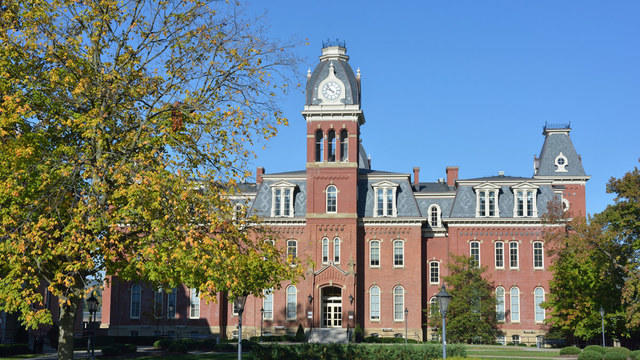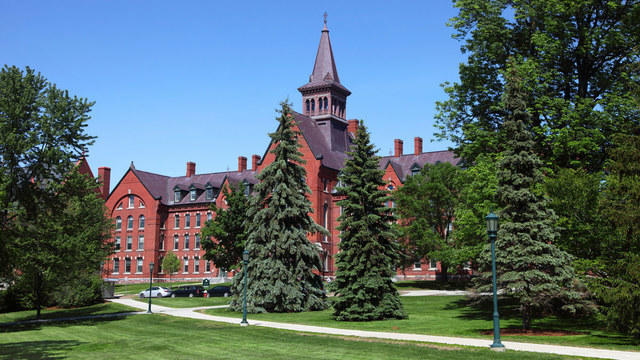Are you looking for the right college for you? Are you confused because of the wide range of options out there? Don't feel alone – there are more than 200 hundred law schools in this country. And, considering how important this decision is, it's easy to feel overwhelmed.
That's why we decided to narrow down the top options in each state. This post concentrates on the top law schools in New Jersey. If you're looking for information on another state's law schools, check out our list of postings – we've covered all states.
We approach things a little differently in these postings. Where most other reviews include all the schools in the state, we've taken a stricter approach. We're reviewing only schools that are American Bar Association-accredited to ensure that there's a good standard of education.
It's also helpful to you. With a degree from an accredited school, you can write the bar exam in whatever state you choose.
In New Jersey, you have three ABA-accredited options:
- Rutgers-The State University of New Jersey-School of Law-Camden: Located in Camden
- Rutgers University School of Law-Newark: Located in Newark.
- Seton Hall University School of Law: Located in Newark.
Rutgers-The State University of New Jersey-School of Law-Camden
- Ranking: 77.
- Bar Passage Rates: 74.3 percent.
- Post-Graduation Salaries: $49,571 to $100,000.
- Acceptance Rate: 69 percent.
- SAT Ranges: 1,000 – 1,180.
- ACT: N/A.
This school is above average, and the campus is relatively small, with only around 5,000 students. The atmosphere is relaxed but highly focused. Rutgers-Camden isn't a school for slackers, and it isn't a big party school.
The smaller campus makes it easy to make friends. There is not a huge emphasis on Greek life or sports. So, if you're not interested in either of these, no one will hold it against you.
You'll receive an excellent education at a reasonable cost. The bar passage rates are not bad at the school, and it counts in the top 100 in the country. It's relatively simple to get in. There is some competition for entry, but not to an excessive degree.
Rutgers University School of Law-Newark
- Ranking: 77. (Tied with the previous school.)
- Bar Passage Rates: 68.8 percent.
- Post-Graduation Salaries: $49,571 to $100,000.
- Acceptance Rate: 64 percent.
- SAT Ranges: 1,100 – 1,380.
- ACT: 21 – 28
This public university consistently earns good ratings. It's of moderate size with a student body of around 7,200. There is a reasonable amount of competition for entry, but you do have a good chance of getting in. The fees are very reasonable, and financial aid is available.
The student body is diverse and generally driven to succeed. If you want to keep your head in your books, no one will tease you for it.
Generally speaking, there is an excellent chance to socialize with fellow students. Rutgers-Newark is not one of the major party schools, but there's plenty to do.
Seton Hall University School of Law
- Ranking: 59.
- Bar Passage Rates: 82.28 percent.
- Post-Graduation Salaries: $49,571 to $115,000.
- Acceptance Rate: 73 percent.
- SAT Ranges: 1,140 – 1,280.
- ACT: 24 – 28.
Seton Hall is a private Catholic school with an outstanding record of academic excellence. It is priced higher than average, but there is financial aid available. The overall school ethos is one where effort brings rewards.
The campus consists of around 5,600 students, so it's moderate in size. The university is beautifully maintained, and there's an air of focus.
Campus life is active. While Greek life is not such a big part of the experience, sports are important at this school.
Which School is Right for Me?
They're all excellent schools. The top pick, though, is the Seton Hall University School of Law.
Why?
- They have the highest ranking.
- Their bar passage rate is the highest,
- The school is prestigious, and this can translate to earning more money in the private sector.
- Students also get a good grounding in Christian values.
Should I Drop the Top School?
Should everyone attend Seton? Not necessarily. If you don't want a faith-based education, for example, one of the other schools is a better fit. Academically, all the schools produce good results.
The cost of Seton might be another exclusionary factor if you're on a tight budget.
Final Notes
When it comes to choosing the right school, any of these are good options. The size of the student body at each school is similar. The primary differentiating factor is that the cost at Seton is higher. The academic success rate at this school is also higher.
The quality of education at the other two schools is also good. So, you don't have to sacrifice a high-quality education because you have a limited budget.












